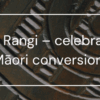
by Dr Stuart Lange | 25 Jul , 2024 | About Christianity, Articles, Christianity and Social & Moral Issues, Christianity in New Zealand, The Church
The very thorough, multi-volume report of the Report of the Royal Commission into abuse in State and faith-based care (covering the period 1950-1999) was released this week. The Royal Commission met for six years and heard from 3,000 survivors of abuse. It is clear from the Interim Report that the full report (few will have read it all yet) will be harrowing reading, with much evidence of horrific abuse of vulnerable children, young people, and adults, especially in care facilities. That included appalling emotional, physical, racial, and sexual abuse, and may have affected at least 200,000 people. Such abuse is most often profoundly harmful, with life-long consequences. We feel deep sorrow for those who have suffered.
It is fair to say that, from a Christian and biblical perspective, any form of abuse is invariably wrong and evil. All such abuse goes against core Christian values: goodness, kindness, respect, compassion, integrity, and self-control. Abuse of others can never be justified, never be defended, never be overlooked.
Given the scale of State involvement in care, much of the abuse took place in State institutions. But it is doubly appalling to us that much of the abuse also took place in church-related contexts, including some church-run children’s homes and schools. Such abuse is completely inexcusable. We feel anguish that this happened, utterly contrary to Christian principles, and anguish that sometimes it still happens.
As a matter of justice, many survivors of abuse will no doubt be seeking financial reparations from those entities (whether the Crown or church denominations) under whom they suffered abuse. We must respect that process.
A key response of every church must now be to be extremely vigilant, and do everything we possibly can to prevent abuse ever happening in our own spaces. Churches that do not yet have rigorous safety and reporting systems should waste no time in ensuring they are in place.
And, finally, we call for Christians to pray about all this:
-
that Government and churches may fully face the awful truth of what happened
-
that perpetrators may find true repentance and remorse for what they did
-
that, by the grace of God, many survivors may experience some healing
-
that we might all be extremely careful to protect the safety and wellbeing of all those under our care

by Dr Robert Siakimotu | 19 Jul , 2024 | About Christianity, Articles, Christianity in New Zealand, The Church
We all know that church attendance in New Zealand is not on the increase, and a lot of people in our country are staying away from church. But the streets and markets are populated with people almost every day, and in my own experience over the last 45 years I have found that a great many of those people are longing for spiritual reality and hope.
While sharing the Gospel in outdoor public contexts is not something that all Christians are keen to do, I strongly believe it is still very important for the Church to be involved in sharing Jesus in such settings. The various outdoor markets around Auckland offer great opportunities for a local church or a group of churches to work together and regularly engage with hundreds of unchurched people. I have found many of those people are willing to stop and talk and listen as I have engaged them in a meaningful conversation about life and its challenges, and about the hope and future that is offered to us in Christ. I have very frequently been able to talk with people about the Gospel.
The biblical framework
The troubles of his people in Judah and the broken walls of Jerusalem burdened Nehemiah and motivated him to do something about it. He ‘prayed to the God of heaven…’ (Neh. 1:4; 2:4). He knew what he needed to do to fix the broken walls. Today we have broken lives that only Jesus can heal and restore, and we have the people empowered by the Holy Spirit and resources gifted by God to do the job.
The encouragement
The Mangere market outreach happens nearly every Saturday. It is a battlefield, with several cults operating at the same market as well. Several Christian folks are there almost every Saturday doing their own thing, but it is encouraging to work together with a group of young Pacific Island evangelists, men and women from several local churches in South Auckland, united in sharing the Gospel. Planting the seed of the Gospel in people’s minds and hearts and letting the Holy Spirit do His work in them is the focus (Isaiah.55: 10-12). Meaningful conversations about the Gospel happen regularly, and some people are led to Christ.
The challenge
As Jesus said, ‘The harvest is plentiful, but the workers are few’ (Matt. 9: 37). Both are still true. There is still a ready harvest in New Zealand. And we still need more workers. I encourage local churches to lift up their eyes, and to see the open doors in our communities, and to ask Lord of the harvest to lead us and help us take the Gospel to the people in our streets, markets, city squares, and everywhere else. It is always time to gather the harvest.

by Dr Stuart Lange | 11 Jul , 2024 | About Christianity, Articles, Christianity in New Zealand, The Church
Spiritually, Christian believers are immensely privileged. We have been reconciled to the awesome Creator of the whole universe, through his Son we have received grace, forgiveness, love, truth, and restoration, the Spirit of God is renewing our hearts and minds, and we belong to God for ever. All this is very good news.
We are not called to keep that good news quiet. Christians are called to bear witness to Jesus in our lives, actions, and words. We called to be light (Matt. 5:14-16), reflecting the Light of the world (John 8:12). We are called to be Christ’s aroma (2 Cor.2:15-16), his living letters (2 Cor.3:3), his ambassadors (2 Cor. 20), his witnesses (Acts 1:8), his apologists (1 Pet. 2:15), his disciple-makers (Matt. 28:19-20), his workers in the harvest (Luke 10:2), and those who go ‘fishing for people’ (Mark 1:16).
But how? Many people in New Zealand are unbelieving, apathetic, distracted, confused, and spiritually resistant. But the world has always been like that, in every time and place. The Light continues to shine in the darkness. God remains at work, by his Spirit calling people to himself, and empowering believers to live and speak for him.
Some suggestions about how to share the Good News of Jesus in our conversations:
- be prayerful, and led by the Holy Spirit
- be friendly, kindly, caring, empathetic
- be humble
- don’t judge
- be good at listening, asking questions, and discerning where individual people are at (they may know very little, or may already have some understanding)
- always show ‘gentleness and respect’ (1 Pet. 3:15b)
- be ready to address barriers to belief, giving sensible reasons for faith (1 Pet.3:15a), but don’t argue
- as God opens the door, progress from general questions about life and God, and bear witness to Jesus himself (how he shows us God, how he rose from the dead, and how he can reconcile us to God and give us new life and hope)
- share something of our own testimony and God’s goodness to us
- we may gently challenge, but don’t push – leave it to the Spirit of God to bring conviction of sin and righteousness, and to grant faith and new life in Christ
Mā Ihowa koe e manaaki, mana koe e tiaki
May the LORD bless and keep you

by (Drs) Malcolm Falloon, Stuart Lange, and Jay Mātenga | 24 Jun , 2024 | About Christianity, Articles, Christianity in New Zealand, The Church
Since 2022, the traditional Māori festival of Matariki has been marked by a new public holiday. There are many aspects to this time of the year which can be welcomed by Christians, and by people of any or no faith: a long weekend, an acknowledgement of the traditional Māori New Year, a recognition of the importance of Māori culture in Aotearoa New Zealand, some stargazing, gatherings and kai, the remembrance of those who have died, gratitude for seasons and harvests, and thinking about the year ahead.
However, Matariki as iwi Māori traditionally understand it, has some elements that Christians cannot embrace. These relate to the religious aspects of the festival. Christian faith – as is Judaism and Islam – is inescapably monotheistic. It is God alone who is the one living and true God (1 Thess. 1:9), God alone who made all things including the stars (Genesis 1), and God alone who must be worshipped and prayed to (Exodus 20:3).
One of the first texts of the Bible translated by the missionaries into Te Reo Māori and published in 1827 was Exodus 20:3 “You shall have no other gods before me”, the first of the Ten Commandments that have been foundational to Christian discipleship for 2000 years. Thus, when Māori converted to Christianity in such large numbers in the mid-nineteenth century, they renounced their allegiances and obligations to ngā atua (the traditional gods), and embraced Christian faith, worship, and practice.
In becoming Christians, Māori also changed their understanding of karakia (prayer). Karakia was no longer considered an incantation only spoken by a spiritual expert, a tohunga, but instead, words spoken from the heart of every believer to God the Saviour, as revealed in Te Paipera Tapu (Holy Bible). In that period, many written Christian prayers in Te Reo were developed for use in communal prayer.
Today, there are numerous Māori Christians who work very hard at navigating their faith and their culture in a way that is faithfully both Christian and Māori and which does not involve karakia to ngā atua (including those represented by the Matariki stars). Consider, for example, what Brad Haami says about Matariki here.
It needs to be recognised that some key advocates for the (re)establishment of Matariki as an occasion for national observance are not motivated or constrained by Christian concerns to worship God alone. Dr Rangi Matamua, a key adviser to the government on Matariki, sees the festival’s religious beliefs and spiritual rituals as central, and Matariki as involving a renewed honouring of the old Māori gods. 1 His stated desire is to reconstruct what he considers the Māori religion of the past. For Dr Matamua, such a move is appropriate in a post-colonial, re-indigenising Aotearoa. The official ceremony in 2022 which marked the establishment of Matariki as a public holiday included karakia and ritual sacrifice to the Matariki deities. On behalf of Te Arawhiti (The Office for Māori Crown Relations), Dr Matamua has also generated and published karakia for Matariki as a resource for schools and the wider public. 2 He has expressed the hope that Matariki will become the new marker of national identity for New Zealanders. 3 However his particular model for observing Matariki cannot really work for followers of Christ, and we should remain careful about how we might choose to participate in and mark this time of year.
Increasingly, many workplaces now require karakia before the start of staff meetings and other gatherings. The purpose of that is to acknowledge Māori tikanga (custom) and to honour iwi Māori as tangata whenua (the indigenous people of New Zealand). Where such karakia is Christian or obviously neutral, that is surely a good thing. But where such karakia invoke ngā atua, deities other than God, that does create a serious issue of conscience to all Christians, Māori or otherwise.
These are interesting times. Christians do need to be spiritually discerning, faithful, and gracious.
1 Rangi Matamua, Matariki: the star of the year (Wellington: Huia, 2017) 90–1.
2 Rangi Matamua, Mānawatia a Matariki: Matariki Karakia (Wellington: The Office for Māori Crown Relations – Te Arawhiti, 2023), available online.
3 Matamua, Matariki, 92

by Alan Vink | 11 Jun , 2024 | About Christianity, Articles, Christianity and Social & Moral Issues, Christianity in New Zealand, The Church
The report of the Royal Commission of Inquiry Abuse in Care, which covers abuse in both State and Faith-based care, is going to be released shortly. Christians need to be very aware of this. Such abuse is something Christians must deeply deplore, and we must do everything we possibly can to prevent it happening again.
A few months ago NZCN News wrote on “The unending horror and scandal of sexual abuse in church-related contexts”, and will publish again soon on this matter. In the meantime, here’s a helpful explainer about the Royal Commission and appropriate Christian responses, from Alan Vink in his latest mailing to pastors (Leadershipworx). We reproduce it here with his permission (and slightly adapted).
Ma Ihowa koe e manaaki, mana koe e tiaki
May the LORD bless and keep you
– (Rev Dr) Stuart Lange & team
Royal Commission of Inquiry Abuse in Care
– Alan Vink
This Report What the Royal Commission is about | Abuse in Care – Royal Commission of Inquiry is now expected to be released to the public on the 26th June or very shortly thereafter. The report will undoubtedly result in a national conversation about how we as a nation cared for vulnerable adults and children in both State care facilities and Faith-based facilities between 1950 and 1999. Based on two interim reports, numerous news stories since 2018 and a TV documentary on Dilworth School, this report is going to be very hard to read. It will also be incredibly sad.
The report will be the culmination of close to six years of work during which the commission received almost 3000 accounts from abuse survivors and witnesses, held 133 days of public hearings and analysed over 1 million documents. In April, Justice Minister Paul Goldsmith told the United Nations’ Human Rights Council that with nearly $170 million in funding over six years, the inquiry “has the most extensive scope and funding of any inquiry undertaken in New Zealand”. “Through the inquiry process, serious issues have been raised around possible breaches in international and domestic human rights in the care system, including the Bill of Rights Act 1990 and the Convention against Torture.”
In the Commissions Interim Report of February 2021 Interim-report-Easy-Read.pdf it stated the following: “We think more than 600,000 people were in care places. We think up to 250,000 people may have been abused. We cannot be sure how many people were abused in care because not all the information is there. We know people are still abused in care”.
It is going to be very interesting to see how the Government responds to this Report – as it must. This may have implications for Churches and other Faith based institutions like schools and camps, for example, who care for children and vulnerable adults.
The crucial question for me however is, how will we as the Christian community respond to the findings in this Report – for we too will need to make a response. Here are a few thoughts just for starters as more will need to be said as this unfolds.
1. That we read the RCI Report carefully.
2. That we adopt a humble posture.
3. That we pray for God’s leading and discernment as to how to respond … specifically what we say.
4. That church leadership teams will discuss it and together decide how you as a local church will respond.
5. That we discuss it in our pastors’ groups both inside our denominations and inter-denominationally.
There are two pressing questions that may be on your minds…
(a) Should we talk about the RCI in our local church? Yes, I would recommend that we do. Though it is a very sensitive topic and though it could trigger some people, on balance I would recommend we are open about it and that we each discern what to say, how to say it and when to say it. Let’s be honest this is going to be talked about everywhere and your people are going to be involved in conversations about it – that is a given. If the local church doesn’t talk about it in empathetic ways that could imply that your church is not a safe place for people to disclose abuse experiences. Talking about it is also an opportunity to clearly state how you as a local church are reviewing safeguarding practices in your own context.
(b) Should we make a public statement? Yes this may be an appropriate response. You may consider making a well-crafted public statement and/or apology that is heartfelt and 100% genuine. In doing so you could acknowledge any harm caused, express empathy and compassion for survivors and even outline your commitment to new safeguarding practices, accountability and change. If you do make any kind of public statement can I urge you to be sure it has a “tone” that reflects deep sadness, lament and repentance.

by Dr Malcolm Falloon | 24 May , 2024 | About Christianity, Articles, The Church
In Ephesians 6, the Apostle Paul urges the church to put on the whole armour of God. What a wonderful picture of the church, strong in the Lord, wrestling against the cosmic powers of darkness, and withstanding all that the devil can throw at her. In terms of the world, the Christians in Ephesus were weak, vulnerable and powerless. But what an encouragement for them to know that they were in fact battle-ready, full equipped with the latest technology (as it were). Who wouldn’t want to go into battle wielding the sword of God’s word (Heb 4:12)?
How encouraging also for us today, when the church is frequently ridiculed from without and dishonoured from within, to know that Christ’s church remains fully equipped for the task ahead. But with the equipment comes a command: “praying at all times in the Spirit (v18).”
What does it mean for Christians to pray in the Spirit? It means to align our prayers with those in heaven, where Christ intercedes on our behalf before the throne of grace (Heb 7:25, Rom 8:34). It is Christ who, when he ascended on high, poured out his Spirit to equip the church for works of service (Eph 4:12). It is Christ who sends the Holy Spirit to convict the world of sin, righteousness, and judgement (Jn 16:8-11). Consequently, as we allow the Spirit to pray in us and through us, we become participants in bringing about Christ’s kingly reign through the proclamation of the gospel and the building up of God’s people.
Paul even gives us an example of such prayer when he asks the Ephesians to intercede for him, that he might have the right words to boldly declare the mystery of the Gospel (Eph 4:12, see also Rom 15:30, Phil 1:19, Col 4:3, 2 Thess 3:1). Colossians 4 gives another example, this time of Epaphras, wrestling in prayer for the church to stand firm and to be fully mature (verse 12). In these cases, to be praying in the Spirit is to be praying for the clear and courageous proclamation of the Gospel and for the church to reach her full maturity in Christ. These examples, of course, are but part of a wider prayer agenda set for the church in 1 Timothy 2:1–7.
Is the church in New Zealand praying in the Spirit in this way? The church might set all kinds of goals and priorities for the future – these are good and have their place. But what really matters is whether we are praying in the Spirit and aligning our prayers with those of heaven. For when we do so, no weapon forged against us will prevail (Matt 16:18, Is 54:11).











